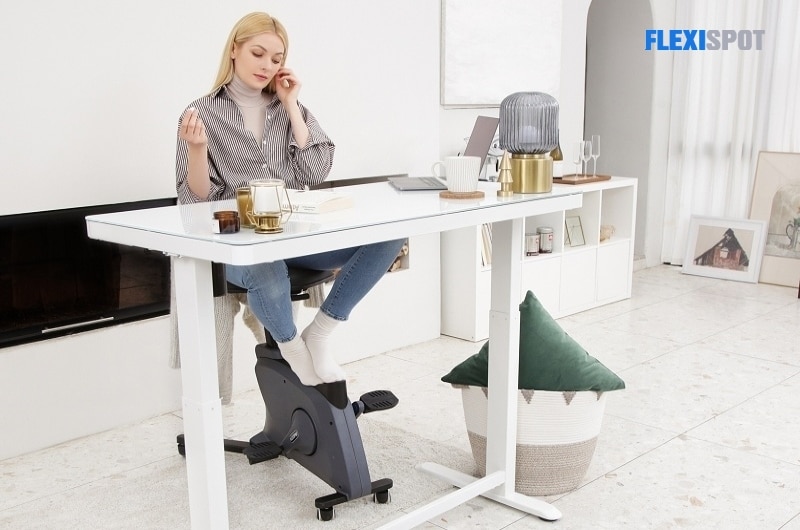Bad Work Habits and How to Break Them
Well, you know what they say:
“A bad habit never disappears miraculously; it’s an undo-it-yourself project."
We all have unpleasant work habits that over time become our norm. Unfortunately, adopting them as the narrative doesn’t make them right any more than singing makes you a musician.
The second quarter of the year is almost upon us; how about you recognize these habits and desist from doing them?
And if you are guessing this article has nothing to do with you, we’d love to ask what do you think bad habits consist of?
Perhaps, talking while eating or chewing on your fingernails ferociously?
How about the unknown habits that have eaten deep into your work productivity?
One of the most accurate quotes about humans is that “we are creatures of habit and routine.” During our growth process, we pick up habits that may seem essential for survival.
It makes sense now to think that we often engage in habits automatically—almost like we have programmed ourselves— bypassing the thinking stage.
These habits that you barely pay attention to affect your work efficiency more than you’d expect—both at work and in life generally.
Research by the University of Minnesota shows that people with self-control lead happier lives. And this research has traced self-control to success; occupational, educational, and social success.
2021 is slowly closing its curtains, and it seems like a perfect time to break the rude habits you have unknowingly picked up. Now we know it’s difficult to call yourself out, we have highlighted the prominent bad work habits here.
We’re ready to do the calling out; how about you take control of your gadget and read this to the end?
Rushing in the Morning
We sure got your attention tagging this as a bad habit. But we aren’t kidding; rushing in the morning is a habit you need to cut off.
Starting your day in an agitated state is like setting yourself up for a crash from the get-go. When your day commences frantically, there’s a big possibility that you didn’t allow your brain to decompress, reboot, and prepare for the start of the day.
On the contrary, you are starting up your brain with an adrenalin rush—now that’s a terrible movie. Chris Brantner, a sleep expert, claims to begin your day by rushing preps you for failure.
The best way to start your morning is to wake up and stay calm for about 10-30 minutes. And you should include meditation in your morning routine as well.
Multitasking
Multitasking isn’t something to brag about; it’s a bad habit that many employers and employees are guilty of, yet it’s one of the most terrible.
The problem with this habit is that it presents an illusion that you are hard at work. Meanwhile, it tricks you into delivering subpar work. But not all multitaskings are terrible.
However, it’s about time we all faced the facts. Computers are designed for multitasking, but our brains are not computers.
Quite frankly, when you multitask, you need to split your focus between two or multiple tasks at once. And the great part of your focus goes into switching between tasks.
Studies by Stanford University revealed that chronic multitaskers are prone to shortened memory. Unlike people who coordinate themselves and focus on a task, they struggle with completing tasks, recalling information, and attentiveness.
Another research from RescueTime shows an average worker switches between tasks about 300 times in a workday. And they jump from one document/ page to another about 1300 times in a workday.
If you believe you are an exception to the result of this study, then this might set the record straight. Researchers at the University of Newcastle, Australia, found that only 2% of the total population can effectively perfect multitasking.
This 2% fall under the umbrella of “supertaskers,” a name coined by David Strayer, a cognitive psychologist.
The other 98% struggle with 50% mistakes and 40% slash in productivity when they multitask. So, if you don’t see yourself falling within the 2%, then don’t attempt it.
Alternatively, why not try becoming a completionist? Start a task, and complete it before you move on to another. It may prove difficult, but it’s your best bet.
You can also work on similar tasks in batches so long as they require equal mental energy. This way, you can break the multitasking habit and effectively preserve your mental energy.
Managing an uncomfortable work chair
Many people pay less attention to their office chairs. Unfortunately, it affects your brain function and could cause soreness which would eventually affect your productivity.
Chairs are built differently. Different office chairs can help improve pain in your hip, neck, back, and shoulders. Settling for the wrong office chair will affect your back over time. You need the best ergonomic chairs that offer adequate lumbar supports and proper curvature.

However, there is a popular misconception that such chairs are expensive. It’s far from true. There are some affordable ergonomic chairs with lumbar support that keeps your spine healthy. An ergo chair is an investment that affects your productivity positively, don’t hesitate to buy one.

Procrastination
Do you find yourself pushing back projects till dying moments? You are not alone in this. But that doesn’t make it less a bad habit than it already is. Procrastination affects your work negatively because it leads to you working on a task hurriedly.
In your defense, you may have unavoidable issues keeping you from getting started. Maybe a family emergency, unforeseen delays, or a down moment that makes working impossible.
You can avoid this by breaking your tasks in bits or setting milestones. This way, you don’t feel like you have a mountain of work ahead.
Working from a substandard desk station
A substandard desk station kills productivity faster than you’d imagine. If you are keen on productivity at work, you must be concerned about your workspace.
Your desk station needs to be ergonomic. Hence, you must invest in a good ergonomic desk that improves your work posture. And unknown to people, and ergo desk helps you work faster and better.
However, we recommend that you buy a standing desk instead of a basic office desk. The standing desk has proven to help people get effective at work and shield them from long hours' health implications.

At Flexsipot, we have a wide range of standing desks with adjustability features that cut across various price ranges.
The adjustability works to ensure a fluid switch from sitting to standing. It helps you maintain your blood flow and improve your health while working.
Tackling easy tasks first
It’s tempting to save the daunting tasks until you’ve completed the easy tasks. But it isn’t the best practice. It's a bad habit. When you resume work daily, arrange your tasks in their order of difficulty in descending order.
Procrastinating arduous tasks till dying minutes puts you in the wrong position where you have to rush it eventually—and it doesn’t end well.
Roy Baumeister, a self-control researcher, discovered that willpower is limited. According to him, your willpower, like a gas tank, empties until you have nothing left. It’s at the highest level when your day starts before it takes a declining trajectory.
Hence, it’s better to take on the tasking assignments first. The more you work, the harder it becomes.
If you have the habit of delaying the best till the last with your office tasks, you should know it’s the greatest productivity slayer. Deal with it when you have fewer distractions flying around.
Having a giant to-do list
Creating an unfeasible to-do list is like planning failure from the get-go. For instance, a to-do list with 10-15 items doesn’t always work out unless you can spend an hour on each task.
Chances are you won’t complete the tasks, and you will feel discouraged because you have a lengthy list of awaiting tasks.
Why not keep to a to-do list with 1-6 tasks daily. This way, you can be more productive, and you won’t be overwhelmed.
Perfectionism
“Have no fear of perfection; you will never reach it," says Maria Curie. Who would have thought she was giving advice that would help you break free from the illusion of perfectionism?
What is perfectionism? It's the act of setting unrealistic work goals or standards and getting thrown off balance when it doesn't work out. Excellence is an admirable work trait, but the rat race for perfection is, in fact, a failed cause.
When you work hard to reach unrealistic standards, you end up getting stuck on perfecting a task. After a while, your list of tasks will build up, and you will fall behind schedules.
Besides, perfectionists quit mentally when they can’t reach the quixotic standards they envisioned-.
Thus, if this is a habit you are guilty of, it’s about time you curbed it. Learn to accept that growth comes from mistakes.
Agreeing to all meetings
You can avoid some meetings. Average professionals spend 31 hours on unproductive or avoidable meetings monthly.
For a fact, these meetings are either unnecessary, canceled, or lack effective time management. You may think it’s chilled topo stay on the good side of everyone by saying yes to every message.
If you know a meeting would fair well without your input, you don't have to be present. Decline politely and save yourself from battered work productivity.
Black-hole browsing
Do you know how you try to run a work search and end up following related trends until you find yourself learning everything about Turkmenistan’s gate to hell?
That’s what black hole browsing means. Fun fact: it sucks up your productivity like you would a chilled drink when you’re thirsty.
You can read about the Bermuda triangle in your own time. Save up the pages if you must. But whatever you do, ensure it doesn’t include clicking related links to articles with nothing to do with work.
Working through the lunch break
According to NPR, eating at your desk isn't only a dingy sight; it's bad. Bad for productivity, your body, creativity, innovation, and any good office traits.
Sadly, studies show that 1 out of every five people goes for lunch breaks. This fact is disheartening and bad for business.
Another research found that taking a lunch break or a midday break is a creativity booster. Sometimes, it might be a walk around the premises; such breaks rejuvenate and refresh. It also helps you goad your lost focus back in line.
Beating yourself repeatedly over unfinished tasks
Don’t forget that you are human! So, stop beating yourself over unfinished tasks. You may fail to finish your tasks due to an emergency or because you find it difficult to focus.
When such things happen, try some refocusing exercise or rest for a while. You can pick up from where you stopped the next day.
Beating yourself won’t make it better; you will only end up causing more stress.
Final Words
Unhealthy habits have a way of slipping past our consciousness until someone calls us out. While working, it’s not unusual to develop bad habits; After all, you are human. But since you have recognized the habits, take conscious efforts to wean yourself off them.
It takes about two to eight months to form a new habit. However, if you put your mind to it, you may find yourself breaking that rule. It won’t be a painless process, but it would be worthwhile!








